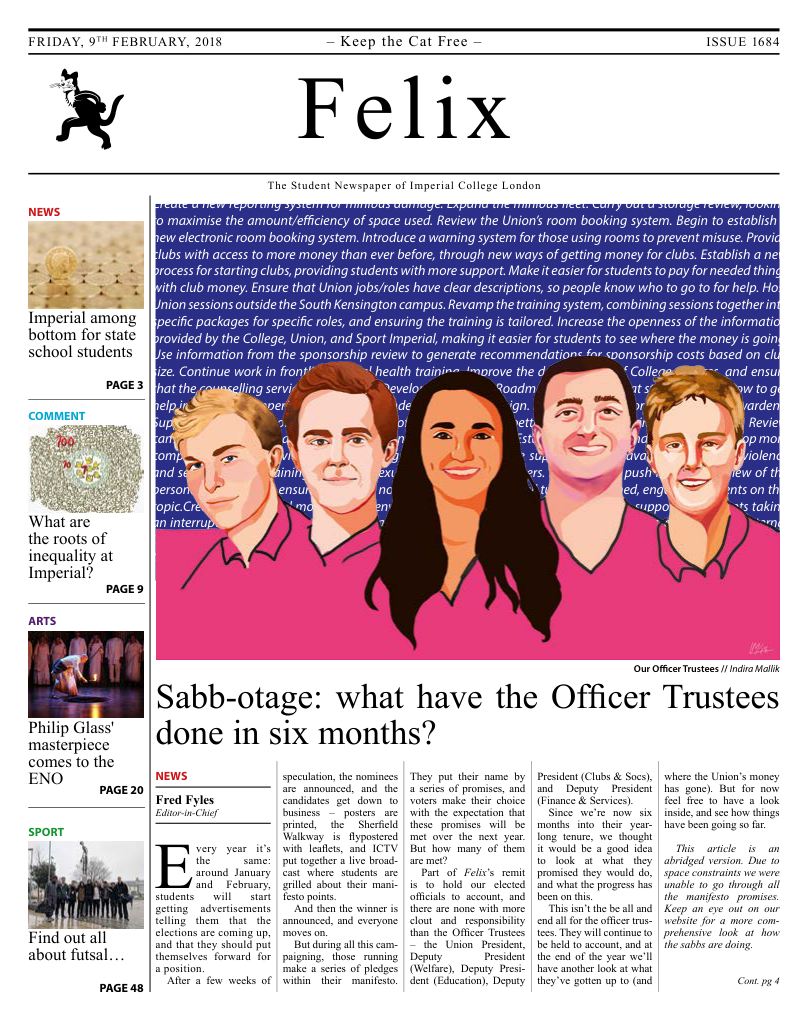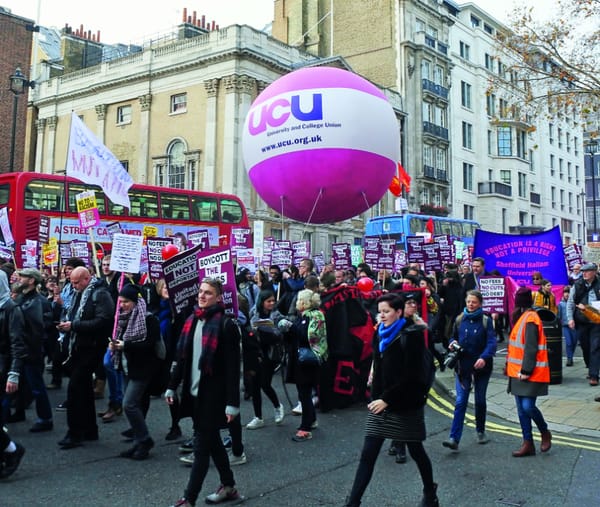Union report highlights issues with Wellbeing Representation Network
The report cites particular concerns over communication, development, and consultation.

Imperial College Union (ICU) have written up an evaluation of the first term of the newly-implemented Wellbeing Representation Network (WBRN), which highlighted issues with communication, development, and consultation.
The document, which was presented to ICU’s Trustee Board, centres around the development of the WBRN – a network of departmental and year representatives, responsible for listening to concerns students might have about their wellbeing, and pointing them to relevant support services. The positions within the WBRN, which was rolled out for the first time this year, were elected in this year’s Autumn Elections.
The report highlighted problems with the time-scale of the rollout, which “put constraints on the ability to conduct effective and meaningful consultation”. The launch-date of Autumn meant there was “not sufficient time to consult with College staff”, who had expressed concern over a lack of trialling. This lack of time was compounded by “a lack of staff leadership and clear objectives…until June 2017.”
“The report said students who 'opposed the Network met with departments before the Union, which led to biases'”
A number of students and staff members had raised concerns during the implementation of the WBRN, specifically around student safety, communication, and the speed at which the implementation was being done. The report admits “if departments had been met earlier in planning more could have been done to address points raised”, and says the students who “opposed the implementation of the Network met with departments before the Union, which led to biases and uncertainty…and discredited the work that had been completed.”
Consultation with students was also an issue identified by the evaluation, which described the communication with students as “insufficient” and having “no reach beyond existing elected volunteers”. The authors said this poor communication led to “limited widespread understanding of the Network, which continues to be a challenge for volunteers”.
Fintan O’Connor, Deputy President (Welfare), told Felix: “The new WBRN has been recognised as a success by elected representatives, College staff, and our members since its launch.” He said the Network “has directly led to a surge of new campaigns and community-building projects across the whole undergraduate student body,” which has “helped us lay the groundwork for a campaign to lobby College to create a meaningful and radical student wellbeing strategy.”
Michael Edwards, President of the Royal College of Science Union (RCSU), who had previously raised concerns about the pressure the Network might place on students, told Felix: “This report echoes concerns the RCSU has been raising for months. I am glad these shortcomings in implementing the WBRN so rapidly have been accepted, and I hope now we will get some more constructive input on the future of the Network. I look forward to…ensuring the WBRN can overcome these challenges and deliver for all students.”
“Fintan O'Connor said 'we believe the success of the WBRN speaks for itself, backed up by the views of participants”
O’Connor told Felix the Union were “committed to completing a term one evaluation that would take a critical look back at how the WBRN was consulted upon and implemented”, and the report would “tell an honest picture of how we can perform better in future.” He told Felix “These evaluations are intended to help us understand what can be done better… meaning taken on their own they can paint a negative picture”
Nevertheless, the report does highlight a number of successes of the WBRN, including “a high percentage of positions filled”, “creation of tangible change” as a result of staff-student committees, building of “relationships with key staff across all departments”. It also makes a number of recommendations for moving the WBRN forward into the next academic year. O’Connor told Felix: “We believe the success of the WBRN speaks for itself, and that’s backed up by the views of the participants.”
One participant in the WBRN told Felix: “my main issue with the Network was it was trying to address an issue without a mission statement of how to do so. So many students dealing with sensitive issues were unsure of their roles, meaning the Network is hard to handle logistically. Ultimately while the wellbeing of students is something we can campaign about, the main issue is a poorly equipped counselling service. A network of students feeding into this already-overloaded service is not going to solve this.”
Nominations in the Leadership Election for positions within the Network are now open. You can nominate yourself here.










